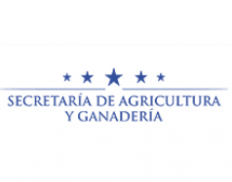Share
Print

The Ministry of Agriculture and Livestock (SAG), created by Decree No. 218-96, in accordance with the sectoral framework established in the Law of Modernization and Development of the Agricultural Sector and the Government Plan for the period 2002-2006,
Its objective is to ensure that national agricultural production is competitive, sustainable and capable of inserting itself in the international economy, responding to the needs of the internal market and integrating into a scheme of human, social, environmental development, based on self-management, participation community, the gender equity approach and the sustainable management of natural resources.
In this context, the SAG plays a triple role in the Public Administration, since it coordinates the planning and execution process of the Public Agricultural Sector Policy, also fulfills functions that are directed to the agricultural production areas of the country and represents this regional and international sector. At the sector level, the SAG coordinates the aspects related to the sector policies that are executed by institutions that make up the Public Agricultural Sector, specifically those related to land tenure, rural financing, commercialization, forestry, agricultural production and rural and forestry development. At the institutional level, the SAG intervenes through its General Directorates and the Programs and Projects that it executes in the short, medium and long term, which incorporate quantifiable and measurable indicators for their evaluation. At a regional and global level, the SAG is a member of different organizations, among which are: the Central American Agricultural Council (CAC), the Tropical Agronomic Center (CATIE), the Inter-American Institute for Cooperation on Agriculture (IICA), the Organization of the United Nations for Food and Agriculture (FAO) and the International Fund for Agricultural Development (IFAD).
